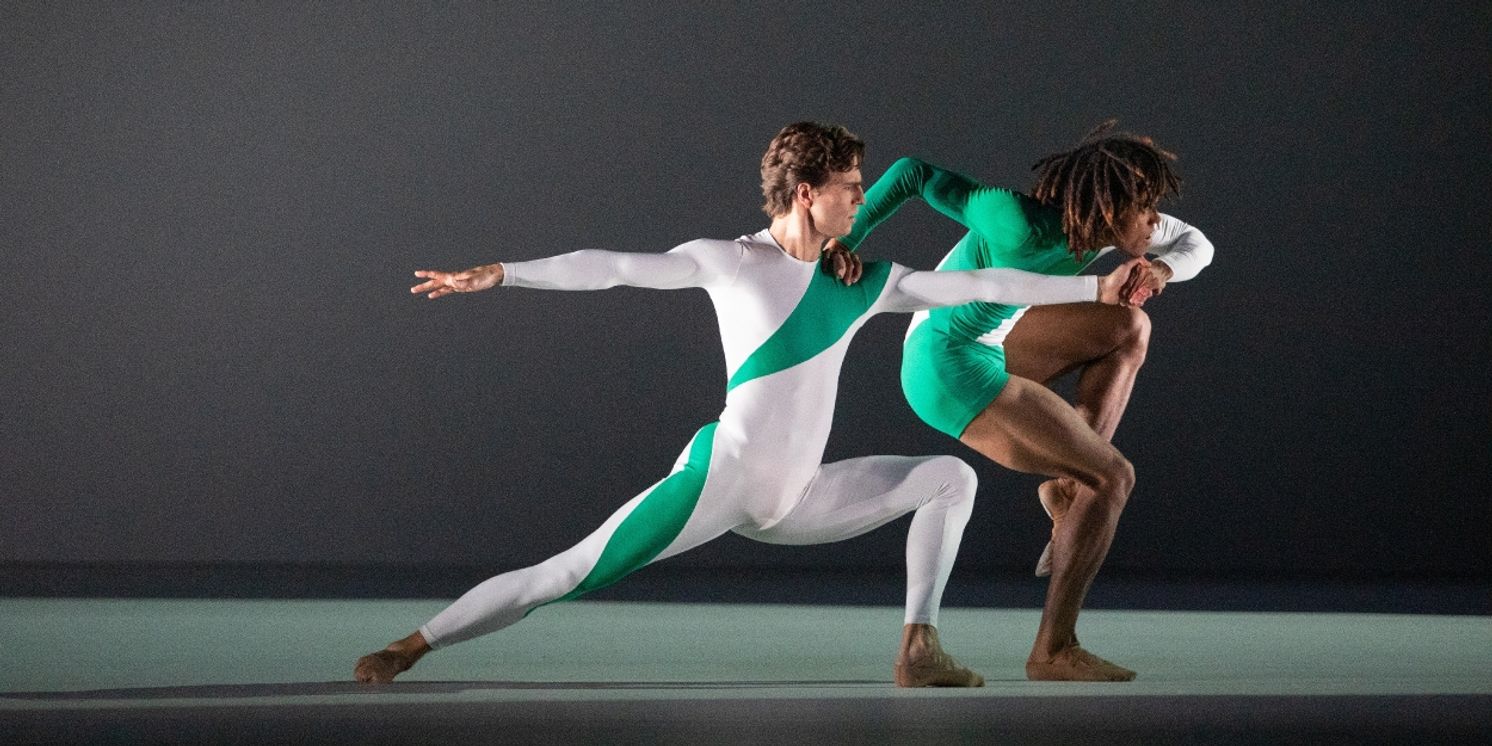Review: UNTITLED, 2023/CORYBANTIC GAMES/ANASTASIA ACT III, Royal Opera House
The triple bill runs at the Royal Opera House until 17 June

![]() Perhaps it’s already clear, but this is a rather subdued triple bill to bring the 22/23 season to a close. Earnest in tone and at times devastating in appeal.
Perhaps it’s already clear, but this is a rather subdued triple bill to bring the 22/23 season to a close. Earnest in tone and at times devastating in appeal.
Those already enamoured by McGregor’s skill will no doubt welcome Untitled, 2023 to his body of work, but it’s dense and lacks momentum. Visually, there is a clear identity, Carmen Herrera’s simplistic geometric designs, white with a slither of green provide the backdrop, while the dancers are in matching unitards by Burberry. Lucy Carter’s stark white lighting illuminates the stage, before switching to various pastels in the later sections.
The choreography utilises an angular vocabulary of movement, spiky and without structure or narrative. Some will find it mesmerising, others won’t know what to do with it. Sections of fluid movement battle with moments of jarring stillness. Moments of the full corp performing alternative steps dissolve into duets and solos without any discernible result.
Joseph Sissens is the pick of the corps, his strength and physicality showcased throughout. Nimble and fleet of foot, his duet with Leo Dixon is an attractive exercise in folding and unfolding. The leading women are not so well utilised, but Fumi Kaneko still brings elegance in a pas de deux with William Bracewell.
Similarly impenetrable is Anna Thorvaldsdottir’s score. There is no beat, no rhythm and requires the dancers to navigate McGregor’s athletic choreography with very little musical assistance. Volume level and sources of sound vary, and as the curtain comes down, it’s barely decipherable, some start to applaud, others wait. McGregor fans will love the visual and enjoy the complexity in Untitled, 2023, those who have never quite “got” it are unlikely to here.
Much more cohesive is Christopher Wheeldon’s Corybantic Games, first seen in 2018 as part of the Bernstein centenary. Erdem’s memorable costumes of elegant corsets with black trim look like something out of a Jean Paul Gaultier advert. It’s divided into different movements of light and shade, some grounded in a soft, classical vocabulary, others more powerful and packed with flourishes such as Anna Rose O’Sullivan and Luca Acri in the third movement, while Mayara Magari continues the momentum in regal style leading the fifth. The chorus of women deliver soft femininity in the more tranquil sections, Wheeldon bringing the warmth that the clinical nature of McGregor’s work did not.
The programme is completed with a revisit to McMillan’s Anastasia, the true story of Anna Anderson who claimed to be the youngest daughter of Tsar Nicholas II and the only survivor of the Russian Royal family’s assassination in 1918. It will already be familiar to Covent Garden regulars and here serves as a swan song to Principal Laura Morera, who retires after 27 years with the company. It’s a fitting showcase of her skill and artistry.
A lot is demanded of any dancer in the main role and without the prelude of the earlier two acts to warm up to the drama. Early on in Act III, Anna/Anastasia relives seeing her family shot dead in front of her, in a rush of trauma she runs and screams. As we understand more of the character’s torment, she must endure nurses who observe her with distant concern, high society onlookers dispersed amongst other remembered snatches of life with her family. It’s a while until Morera gets to truly dance, her body inhabiting the necessary heaviness of her plight with unwavering commitment.
In the final moments, she mounts her hospital bed, adopting a regal pose, slowly and serenely she floats past her tormentors until curtain down. Rather than a sugar sweet goodbye, this is a brief hit of drama to end a career on, but a testament to Morera’s unique strengths, an understated star of the company.
Untitled, 2023/Corybantic Games/Anastasia Act III is at the Royal Opera House until 17 June.
Photo Credit: Alice Pennefather
Reader Reviews
Videos

